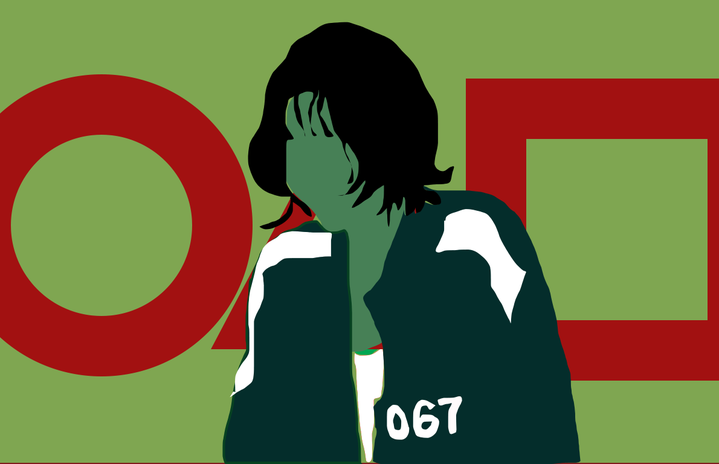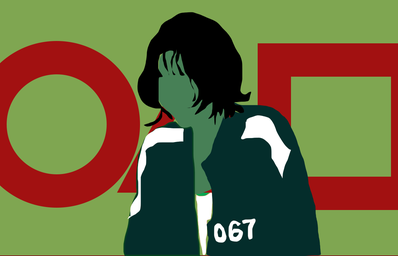If you have yet to watch the Netflix original series Squid Game I recommend you watch the show prior to reading this article. I will be taking a deep dive into my own interpretation of the metaphors and social commentaries the show, not so inconspicuously, hides. Squid Game is a short Netflix original series with only nine episodes. The show was released on September 17th and after only two weeks, the series became the most-watched Netflix show in 76 countries.
The storyline of the show goes as such: a secret organization specifically selects indebted and desperate individuals to participate in a competition consisting of multiple children’s games on an unknown island somewhere off the coast of South Korea. The games that the organization conducts are simple in nature, such as the classic children’s game “Red light, Green light”. However, there is a catch; the losers of each game pay with their life. The 456 participants are desperate and indebted people who have no other option but to try and win the prize of 46.5 billion won (39 million USD). As a result, the point of the game is to be the last person alive in order to collect the cash.
Whether the producer attempted to achieve this goal or not, the show can be viewed as a metaphor for capitalism and the large socio-economic gap in South Korea. The people targeted by the “game markers” to participate in the trials are those who have an insurmountable amount of debt. The participants are required to sign a contract stating that they consent to participate in the competition; however, this aspect of consent for participating in the game is null. The game makers take advantage of the participants’ situations by carefully choosing the most desperate people within South Korea. Due to the players’ vulnerability and desperation, the game makers knew that the chosen people would have no choice but to say yes (even when given the choice to walk out). Additionally, the participants were not provided complete and honest information about the extent to which the games would go within the competition.
In comparison, the game makers are displayed as gaudy and rich characters who take pleasure in watching the pain and suffering of the participants (the poor population). The most outstanding metaphor unfolds when the viewers are shown the “VIPs”, a group of masked male individuals for whom the games are hosted. These powerful men place bets on which participant they think will survive until the end. The VIPs come to the island to watch the last two games unfold live in the last episode. Each VIP, although covered by an animal mask, are males who all speak English in various accents. It seems that the VIPs represent the different nations in the world that hold substantial economic power. Overall, the show embodies how the poor and desperate population is viewed as subhuman puppets for the rich and powerful’s pleasure thus providing a metaphoric commentary on the impact of the “games” international superpowers play on the common man. As a result, the show provides a dark and negative perspective on humanity altogether — one where the producer views the rich as arrogant and sadistic and the poor as desperate and vulnerable.
*Edited by Annie Stibora


